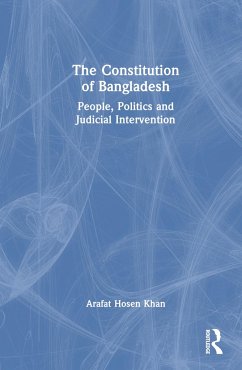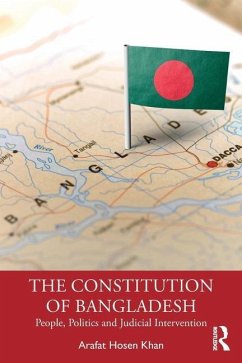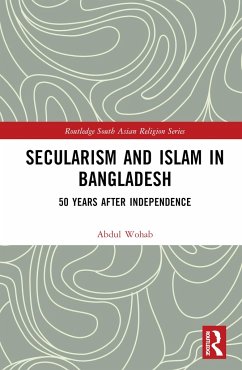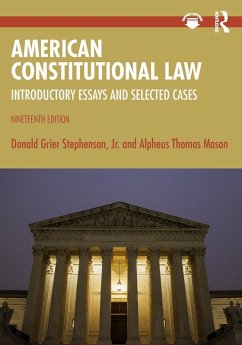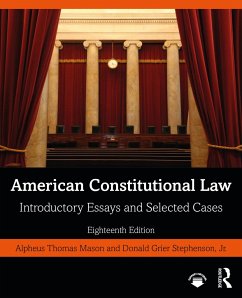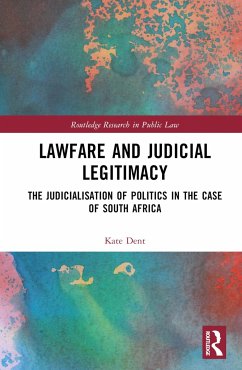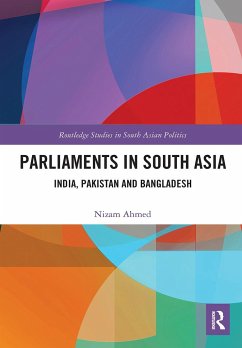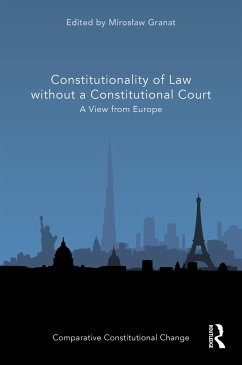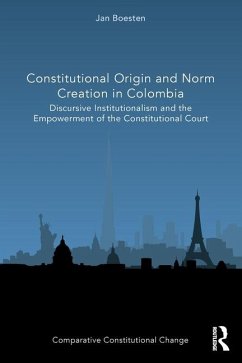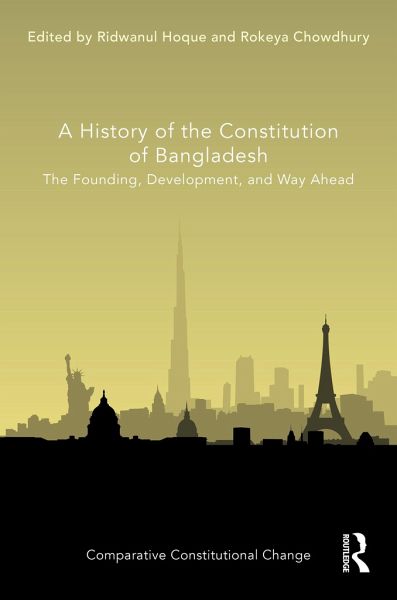
A History of the Constitution of Bangladesh
The Founding, Development, and Way Ahead
Herausgegeben: Hoque, Ridwanul; Chowdhury, Rokeya
Versandkostenfrei!
Versandfertig in 6-10 Tagen
144,99 €
inkl. MwSt.
Weitere Ausgaben:

PAYBACK Punkte
72 °P sammeln!
Marking the 50th anniversary of Bangladesh's Constitution, this book gauges its development from 1972 to 2022, focusing on its foundational goals, performances, and current challenges.The collection, presenting diverse but issue-specific chapters, shows how the people, political parties and leaders, and constitutional and legal institutions interact with each other in advancing, breaking, and remaking their Constitution. It examines the local context, parliamentary history, and interpretive tools adopted by the Supreme Court in understanding the Constitution as well as the future prospect of c...
Marking the 50th anniversary of Bangladesh's Constitution, this book gauges its development from 1972 to 2022, focusing on its foundational goals, performances, and current challenges.
The collection, presenting diverse but issue-specific chapters, shows how the people, political parties and leaders, and constitutional and legal institutions interact with each other in advancing, breaking, and remaking their Constitution. It examines the local context, parliamentary history, and interpretive tools adopted by the Supreme Court in understanding the Constitution as well as the future prospect of constitutional politics and practices. The work brings together legal professionals and constitutional law scholars to encapsulate the panorama of the country's constitutional evolution. The authors look back to the history of constitution-making, to reflect critically on the present in light of the founding goals, spirits, and aspirations and with a view to offering a forward-looking and resilient vision of constitutionalism in Bangladesh.
The book will be of interest to researchers, academics, and policy-makers working in the areas of comparative constitutional law and politics and South Asian Studies.
The collection, presenting diverse but issue-specific chapters, shows how the people, political parties and leaders, and constitutional and legal institutions interact with each other in advancing, breaking, and remaking their Constitution. It examines the local context, parliamentary history, and interpretive tools adopted by the Supreme Court in understanding the Constitution as well as the future prospect of constitutional politics and practices. The work brings together legal professionals and constitutional law scholars to encapsulate the panorama of the country's constitutional evolution. The authors look back to the history of constitution-making, to reflect critically on the present in light of the founding goals, spirits, and aspirations and with a view to offering a forward-looking and resilient vision of constitutionalism in Bangladesh.
The book will be of interest to researchers, academics, and policy-makers working in the areas of comparative constitutional law and politics and South Asian Studies.





